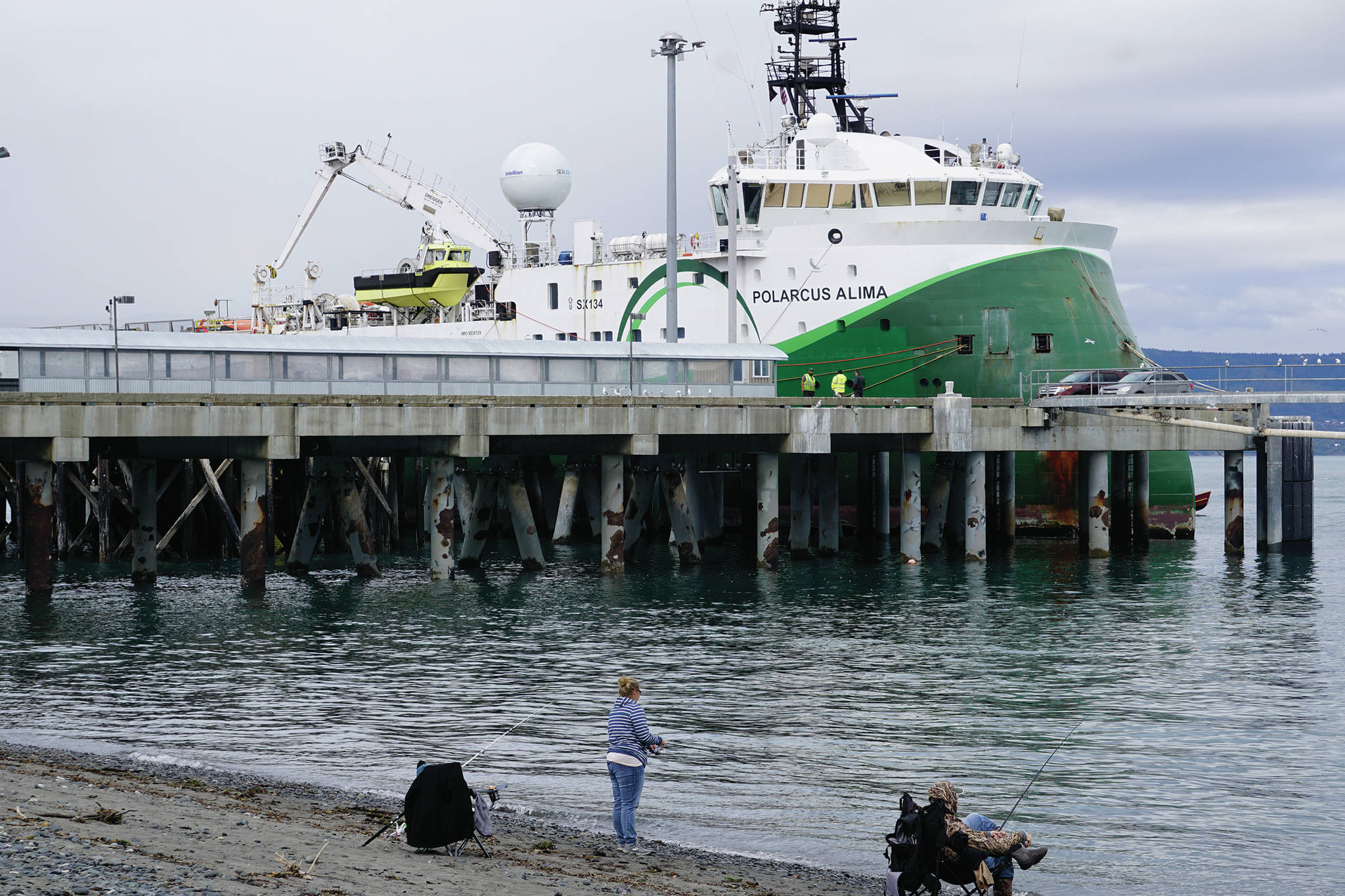JUNEAU (AP) — Conservation groups are suing a federal agency over rules they say could harm beluga whales and other marine mammals in Alaska’s Cook Inlet.
An attorney for the Center for Biological Diversity, which is challenging the rules along with Cook Inletkeeper, said the lawsuit was filed last Wednesday, Sept. 4, against the National Marine Fisheries Service, also known as NOAA Fisheries.
The lawsuit seeks to block rules that would allow certain oil and gas operations by Hilcorp Alaska with the potential to injure or disrupt marine life through noise exposure.
The agency has said it is requiring a mitigation plan to reduce effects on the Cook Inlet belugas and other marine mammals to the “lowest level practicable.” It also has said its analysis indicates the rules will not contribute to or worsen the observed decline of the Cook Inlet beluga whale population.
On Aug. 14, the Bureau of Ocean Energy Management announced it had approved a permit for Hilcorp to do geophysical exploration of 14 federal Outer Continental Shelf leases Hilcorp acquired in 2014. The permit allows Hilcorp to do seismic surveying from Sept. 1 to Oct. 31. The 300-foot Polarcus Alima vessel will tow an array of compressed air guns that fire air blasts through the ocean water down to the sea floor.
Based on the analysis of potential effects, planned activities and a mitigation and monitoring program, NOAA said it determined the work would have a negligible impact on the whales.
Julie Speegle, an Alaska-based spokeswoman for the agency, by email said it is policy to not comment on litigation. A message seeking comment also was sent to a Hilcorp spokesman.
The lawsuit says the analysis wasn’t as rigorous or comprehensive as it should have been. It says scientific experts have warned that noise pollution from oil and gas activities in the inlet is likely to push the whales “closer to extinction.”
According to the Marine Mammal Commission, the Cook Inlet beluga whale stock was estimated around 1,300 animals in 1972 but declined sharply in the 1990s due largely to what it called unsustainable subsistence harvesting. The population was listed as endangered in 2008.
The lawsuit says while there has been no subsistence hunting of the species in years, the population has shown no signs of recovery. Fewer than 330 whales remain, it says.



